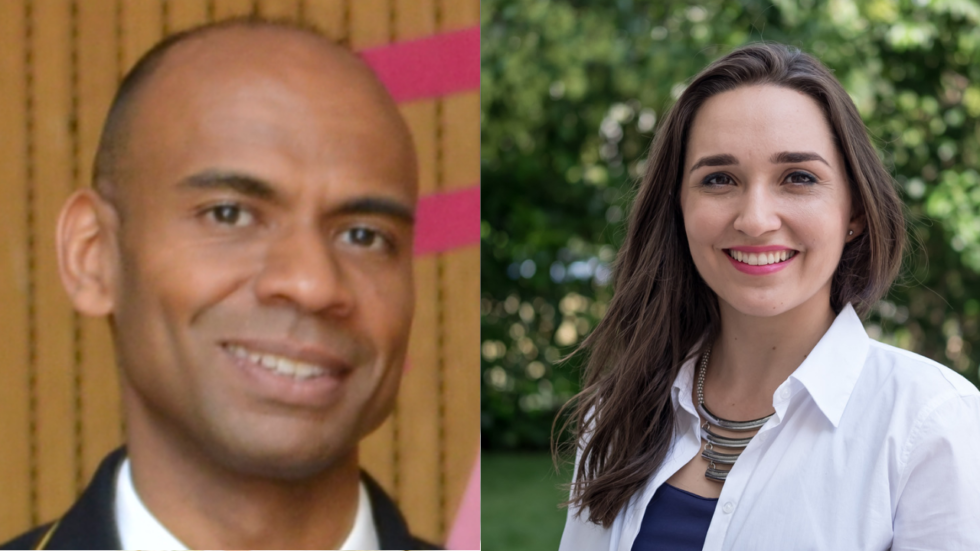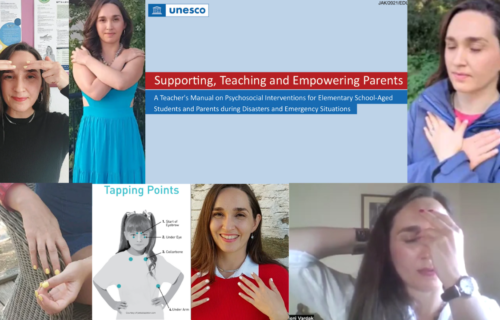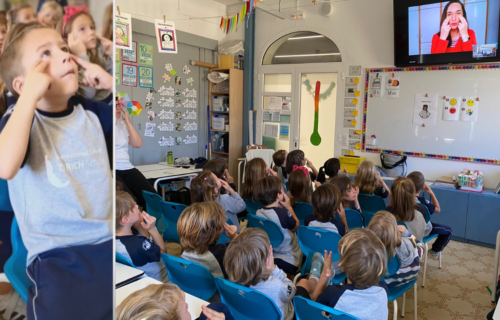
Challenges Parents Face in the 21st Century
WHAT’S THE ISSUE: How do you raise a child in the (ever-changing) age of technology and globalization? Mark McAuley is an Educational Consultant for International Schools who has worked with students and parents all over the world. He believes it’s important for parents to have compassion for themselves, because of the unique challenges parents face raising kids in the 21st century. Mark’s hope that parents who watch his talk will walk away:
- feeling encouraged.
- understanding how, as a teenager, your child is now becoming an adult.
- with insights into what you can do to prevent your child dealing with the inevitable stresses of life through unhealthy, negative coping mechanisms.
CHALLENGES PARENTS FACE: COMMUNICATING WITH TEACHERS
MARK MCAULEY: What I aim to do is give four bits of information that people can take philosophically or practically.
There’s the stress of the student, there’s the stress of the teacher and there is the stress of the parent.
I aim to cover four things that will probably take into account everybody.
Rule of thumb: home-school communication, it is a good key to success.
You know, a major thing often is that the parents themselves haven’t done the IB. The system that they are doing is completely alien to them, so they will always have their own apprehension faced with wellness.
One of the keys to success is to speak with the teachers, each of the teachers, and get their opinion on how they see your child (their student).
You want to know what the skill level of the child is, and what the teacher perceives are the necessary steps in school that the child needs to take to make progress.
Hopefully the teacher will give you some ideas of things that you can do at home.
So what you want to have is a consistent world for the student.
Now bear in mind that the student is becoming a junior adult, so what worked 5 years ago as a child will not work with someone that’s developing into an adult. So these things need to be thought of.
The home-school relationship should be ongoing.
Don’t be scared to email the teacher.
As a teacher, we believe that it’s good common sense that parents always keep us informed of what is going on, and what might be coming in the future.
But it always surprises me that parents take this for granted.
In some cultures, I’ve had the experience of someone who is a student, who is aware that they will be getting married in the next year or year and a half, or two years. So you can imagine in the back of their mind, this is a huge thing.
I’m not here to make any judgment – far from it. But we also have to remember that the teachers don’t know the cultures of the families that they are dealing with. So that’s a huge thing.
We’re always walking through all of these unknowns. To find out the unknown is a step in the right direction.
CHALLENGES PARENTS FACE: LISTENING WITHOUT JUDGING
The second piece of information that I would like to give, again from my experience, is that the students we see as having all of these resources around them; we see that they have parents who care about them, and we see that there are teachers that are working around the clock for them, and they have friends who are a lifelong support network.
But as we go through high stress situations and especially things like the IB Diploma Program, the parents and teachers now become the gatekeepers of pressure, and the gatekeepers of expectations.
So that relationship now becomes a power relationship, and then the fear of “If I say something that isn’t to the gatekeeper’s liking, where will that put me?”
Friends, as we know, are wonderful to have. But I have seen the experience with many students going through the DP, that they often become competitive with their friends.
We know in every schools there are counsellors, and we always encourage children to go to counsellors.
I was not a counsellor in a school. I was someone who had an experience of counselling young offenders and parents. I understood that when people came to me, they wanted to hear nothing from me they just wanted to talk to me and they didn’t want to hear my judgment.
So I always go by the book that, yes, we have to encourage children and speak to counsellors. But the reality is that won’t work for every child all of the time, and different places around the world have different circumstances.
The fail-safe lesson often is, encouraging children to have someone who they can confide in who won’t judge them.
Now the thing that we want to preempted, students and young adults developing negative coping mechanisms.
So this also is a skill for life that as adults we often neglect, because we get caught up in things, but we fool ourselves into believing that as adults we are mature that we can handle it all.
CHALLENGES PARENTS FACE: MAKING RULES AND SETTING BOUNDARIES
Having someone in your home who is now becoming an adult is going to cause a lot of friction. The peaceful relationships that you want to have are now going to be different.
If you are in a culture where there are lots of other cultures, your son or your daughter will see how these other parents, the other families and the other cultures are giving their children certain freedoms that this particular person will not be receiving. So they will always be comparing and contrasting, and they will always tell you that you’re not fair.
As someone that was working with the young offender, someone that was dealing with the parent, we realize that there are certain battles that you are not going to win.
Parents are the ones who pay the rent. And the one that pays the rent makes the boundaries, and the rules.
So these are discussions that you have to have – I am not saying that there is any one particular way.
But I am expressing from my experience, that if you are conscious that a lot of the friction that you are getting is because this person is becoming an adult, and they want to act like an adult. But as you are someone who probably has paid for their education, you feel that they kind of owe you a payback for what you have invested.
This is completely natural, and this is a lot of what I have seen all throughout my career, everywhere that I have gone now.
CHALLENGES PARENTS FACE: NOT BEING GOOD ENOUGH
The fourth thing, or the fourth piece of information: It’s very important for parents to remember that no one trained them to be parents. Parents are always beating themselves up, and they have this idea that whatever they do, it’s not good enough.
I always take the view that if your child has gotten to this point, then you have done a lot of things well.
You will never ever win against the world, because the world is set up in such a way that no matter what you do you are going to get it wrong. So why not take the other side and know that you are doing your best.
Your parents haven’t gone through this situation in this time, and this day and age. Not only are you dealing with your child, but you’re dealing with the world of technology that your child is going to interfere with, going to interact with, and going to be influenced by. So you are dealing with influences that even international governments can’t defend against.
The effect that stress has on the parent will rub off on the environment. But it’s good to have a reality check that parents in this process have a heavy, heavy job to do.
There’s nothing more that I would like to add other than I’d like to thank you very much for your time, Eleni. I think that the effort that you’re putting to coordinate this for different families and cultures around the world is amazing. Thank you.




